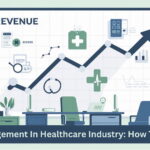In the fast-paced world of healthcare, continuous learning is not merely a recommendation; it’s a necessity. The field is characterized by constant advancements in medical knowledge, technology, and patient care practices. This rapid evolution demands that healthcare professionals not only keep up but also actively engage in ongoing education. By doing so, they ensure that they remain at the forefront of the field, equipped to provide the best possible care to their patients. In an environment where a single breakthrough can change treatment protocols overnight, staying informed and educated is crucial. Healthcare professionals who commit to continuous learning position themselves to better understand and utilize novel discoveries, ultimately enhancing the care they provide.
1. Leadership Opportunities
One of the most compelling reasons for healthcare professionals to pursue continuous learning is the opportunity to advance into leadership roles. Higher education, particularly specialized programs like MBA programs with a healthcare concentration, is key in this regard. These programs go beyond the clinical aspects of healthcare, delving into the administrative, ethical, and managerial skills necessary for effective leadership. As the healthcare landscape becomes more complex, those in leadership positions will need a robust understanding of both the business and clinical sides of their organizations. MBA programs with a healthcare concentration are specifically designed to bridge this gap. They equip professionals with a comprehensive skill set that combines business acumen with healthcare knowledge, making them ideal candidates for leadership roles within healthcare organizations.
Moreover, the rise of online education has made online MBA healthcare programs more accessible than ever. Pursuing an MBA in healthcare online offers flexibility and convenience, allowing healthcare professionals to balance their education with their demanding work schedules. Online programs also provide the advantage of immediate application of learning. Professionals can apply new concepts and strategies directly to their current roles, seeing the real-time impact of their education on their work. This combination of theory and practice is invaluable, preparing healthcare professionals not only for future leadership roles but also enhancing their current performance and understanding of the healthcare industry.
2. Keeping Pace with Technological Advancements
The healthcare industry is at the forefront of technological innovation, with new tools and technologies constantly emerging. From advanced diagnostic machines to sophisticated electronic health records systems, technology is reshaping how healthcare is delivered. For healthcare professionals, keeping pace with these technological advancements is crucial. Continuous learning in this context means staying updated with the latest technological developments and understanding how to integrate them into patient care.
Engaging in ongoing education helps healthcare professionals to not only learn about new technologies but also to critically assess their applicability and effectiveness. This knowledge is vital in a field where the right technology can significantly improve patient outcomes. Whether it’s learning about the latest in medical imaging or understanding how to use data analytics to improve patient care, continuous learning ensures that healthcare professionals can effectively leverage technology to enhance their practice. By staying abreast of technological advancements, healthcare professionals can provide more accurate diagnoses, more efficient treatment, and overall better patient care.
3. Enhancing Patient Care and Outcomes
A primary goal of all healthcare professionals is to provide the best possible care to their patients. Continuous learning plays a vital role in achieving this objective. As medical research advances, new treatments, medications, and care protocols are constantly being developed. Healthcare professionals who engage in ongoing education are better equipped to understand and apply these advancements, leading to improved patient outcomes.
Education in new areas of medical research can enable healthcare professionals to provide more effective treatment plans and offer the latest therapeutic options to their patients. For instance, staying updated on the latest in pharmacological advancements can make a significant difference in the management of chronic diseases. Additionally, continuous learning about patient care techniques can lead to more compassionate and effective communication with patients, enhancing their overall experience. By committing to lifelong learning, healthcare providers can ensure they are always providing care that reflects the latest standards in the medical field.
4. Meeting Regulatory Requirements and Standards
The healthcare industry is governed by a complex set of laws and ethical standards that are continually evolving. Continuous learning is essential for healthcare professionals to remain compliant with these changing regulations. By staying informed about the latest healthcare laws, regulations, and best practices, professionals can avoid legal pitfalls and ensure their practices meet the highest standards of care.
For example, changes in healthcare regulations can affect how patient data is handled, requiring professionals to adapt to new privacy standards. Similarly, updates in clinical guidelines necessitate a quick response from healthcare providers to align their practices with current standards. Ongoing education in these areas not only helps healthcare professionals meet regulatory requirements but also instills confidence in their patients, who can trust that they are receiving care that is not only effective but also ethically and legally sound.
5. Developing Specialized Skills and Knowledge
Another significant benefit of continuous learning in healthcare is the opportunity for professionals to develop specialized skills and knowledge. The vastness of the medical field means that there are numerous areas where healthcare professionals can specialize, whether it’s in pediatrics, oncology, geriatrics, or another field. Specializing allows professionals to provide more targeted and effective care to specific patient populations.
Engaging in specialized training and education enables healthcare professionals to delve deeper into specific areas of interest, allowing them to become experts in their chosen fields. This expertise is not only beneficial for the patients who receive more specialized care but also for the professionals themselves, as it can lead to career advancement and personal satisfaction. Specialization requires a commitment to continuous learning and staying abreast of the latest research and techniques in a specific area, ensuring that the care provided is the most current and effective.
Conclusion
Continuous learning is an indispensable part of a successful healthcare career. It opens doors to leadership opportunities, keeps professionals abreast of technological advancements, enhances patient care, ensures compliance with regulatory standards, and allows for the development of specialized skills. In a field as dynamic and impactful as healthcare, the commitment to lifelong learning is not just a professional responsibility; it’s a cornerstone of excellence in patient care and personal career fulfillment.
Did you find this helpful? Check out our other helpful articles on our website.
Read Also
- How to Drive Growth Through Customer Centricity in HealthcareThe world of healthcare is changing in big ways. Consumers are now stepping up and taking charge of their health journeys. This change is happening now for important reasons. The U.S. health and wellness market is huge, projected to be over $6 trillion in 2025. This growth is fueled by rising out-of-pocket costs and more… Read more: How to Drive Growth Through Customer Centricity in Healthcare
- Maximizing Digital Reach for Podiatry Clinics in Local HealthcareMaximizing Digital Reach for Podiatry Clinics in Local Healthcare As the healthcare industry evolves, mobile marketing becomes indispensable for practitioners. Podiatry clinics, focusing on foot and ankle care, must adapt to digital strategies to engage patients effectively. Implementing tailored SEO practices is crucial for these clinics to thrive in an increasingly competitive market. Digital marketing… Read more: Maximizing Digital Reach for Podiatry Clinics in Local Healthcare
- Leveraging Virtual Medical Assistants to Maximize Operational Efficiency in HealthcareIn the increasingly complex and fast-paced world of healthcare, operational efficiency is critical. Doctors and healthcare administrators are faced with numerous challenges, from managing patient scheduling and medical billing to adhering to stringent regulatory compliance and insurance claims processing. These tasks, while essential, often divert time and resources away from the core mission of providing… Read more: Leveraging Virtual Medical Assistants to Maximize Operational Efficiency in Healthcare
- Optimizing CT Protocols: The Hidden Key to Efficiency and Cost Savings in RadiologyIntroduction: Why CT Protocol Optimization Matters Computed Tomography (CT) is a cornerstone of modern diagnostic imaging, providing critical information across nearly every medical specialty. However, maximizing the value of CT — both clinically and financially — requires more than just advanced hardware. The real secret lies in the optimization of CT protocols. When CT protocols… Read more: Optimizing CT Protocols: The Hidden Key to Efficiency and Cost Savings in Radiology
- Hospital Discharge Accuracy Improves With Daily Advisor InvolvementThe hospital discharge process has a big effect on patient recovery, hospital efficiency, and finances. It requires careful planning and clear communication between team members to make sure patients get the right care when they leave the hospital. Having physician advisors involved at this stage can improve the discharge process by spotting problems that need… Read more: Hospital Discharge Accuracy Improves With Daily Advisor Involvement
- Understanding Clinical Trials: What to Learn and the RoadblocksClinical trials are research studies conducted to determine the efficacy of medical, surgical or behavioral interventions. They are the most commonly used way that researchers assess whether new treatments, drugs or medical devices are safe and effective for use in humans. There are strict protocols governing these studies, and all of this is done in such a… Read more: Understanding Clinical Trials: What to Learn and the Roadblocks
- The Patient’s Voice: 7 Ways to Improve TelehealthTelehealth has transformed how we access healthcare, making it more convenient and accessible than ever before. However, as this technology evolves, so does the need for improvement. Patient feedback is essential in shaping these telehealth experiences. It offers valuable insights into what works, what doesn’t, and how we can make virtual care even better. Currently,… Read more: The Patient’s Voice: 7 Ways to Improve Telehealth
- How to Overcome Healthcare Claim Denial Challenges and Increase RevenueTable of Content Understanding Major Challenges in Healthcare Claim Denial Management Financial Impact of Healthcare Claim Denials Optimizing the procedure Important Strategies for Managing and Resolving Denials Understanding Major Challenges in Healthcare Claim Denial Management Healthcare Claim Denials have become a major challenge for healthcare providers and administrators. Such denials not only delay payments but… Read more: How to Overcome Healthcare Claim Denial Challenges and Increase Revenue









